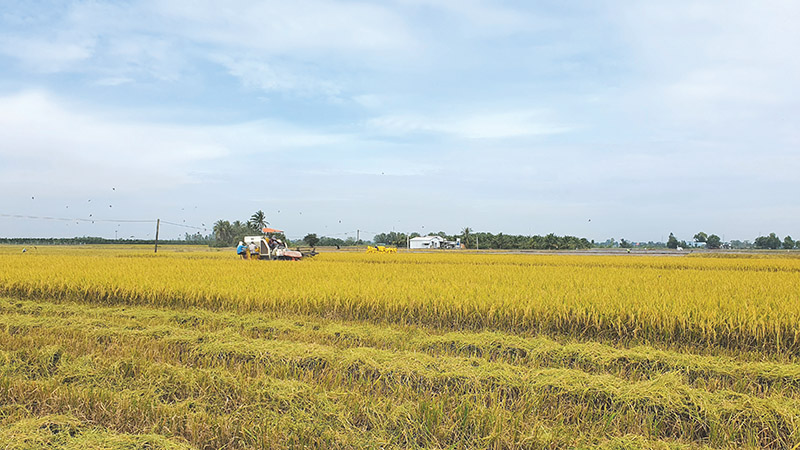HCMC – The World Bank (WB) will support Vietnam’s participation in the voluntary carbon market through an initiative involving one million hectares dedicated to high-quality, low-emission rice cultivation in the Mekong Delta.
This project, unveiled during the International Rice Festival in Hau Giang Province from December 12 to 15, is expected to deliver direct benefits to Vietnamese farmers and the agricultural sector while aligning with green growth goals.
“WB will support this initiative through mechanisms facilitating Vietnam’s participation in the voluntary carbon market,” said the WB director for Vietnam, Carolyn Turk.
Turk also emphasized the potential for sustainable financial resources to fuel continued development and livelihood enhancement.
Recognized as a green growth strategy in the Mekong Delta, the initiative aims to cultivate one million hectares of high-quality, low-emission rice and necessitating a comprehensive transformation of the production system with a focus on value-chain restructuring.
Throughout the project, the Ministry of Agriculture and Rural Development and its partners will explore innovative policies, such as carbon credit payments linked to performance, to encourage low-emission production methods in line with green growth principles. The project also promotes a circular economy and the utilization of rice by-products.
This pioneering initiative, endorsed by the International Rice Research Institute (IRRI) as a global first, tackles pressing challenges in the rice industry, including increasing rice yields, enhancing farmer incomes, and mitigating the impact of climate change.
The project’s financing comes from diverse sources, including central and local budgets, bank loans, funds raised from domestic and international organizations, grants, and official development assistance. The Department of Crop Production is seeking technical and non-repayable financial support from WB’s Transformative Carbon Asset Facility for the project.
The voluntary carbon market allows private investors, governments, non-governmental organizations, and businesses to trade carbon offset credits, enabling them to offset their emissions and reduce their carbon footprint.
The market has witnessed a surge in companies participating in carbon credit transactions in recent years, with its value reaching US$2 billion in 2021. This market is projected to grow tenfold by 2030, potentially reaching tens of billions of dollars.









